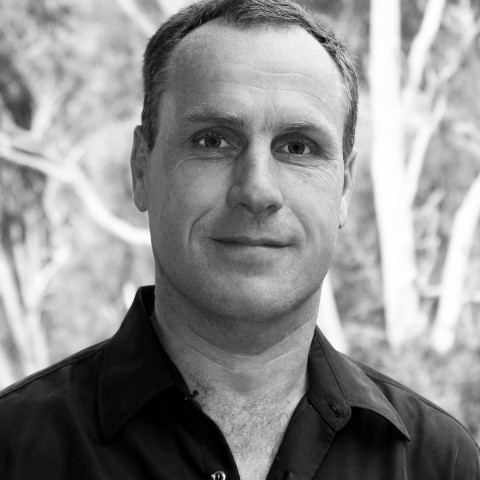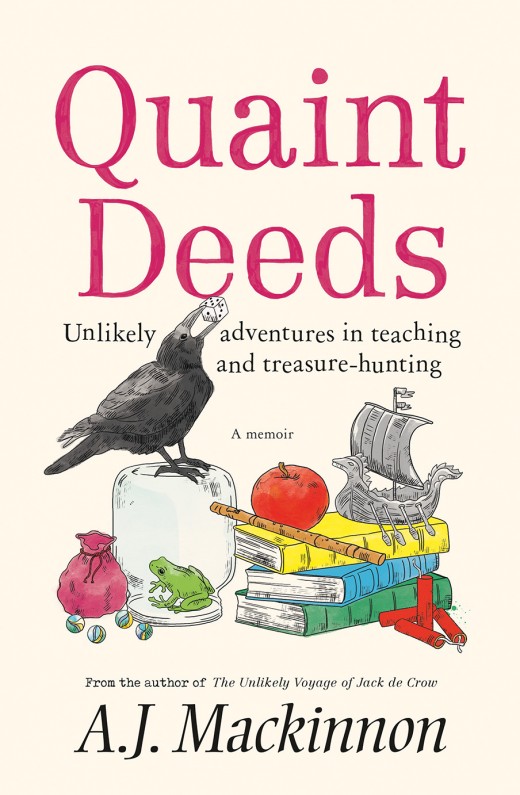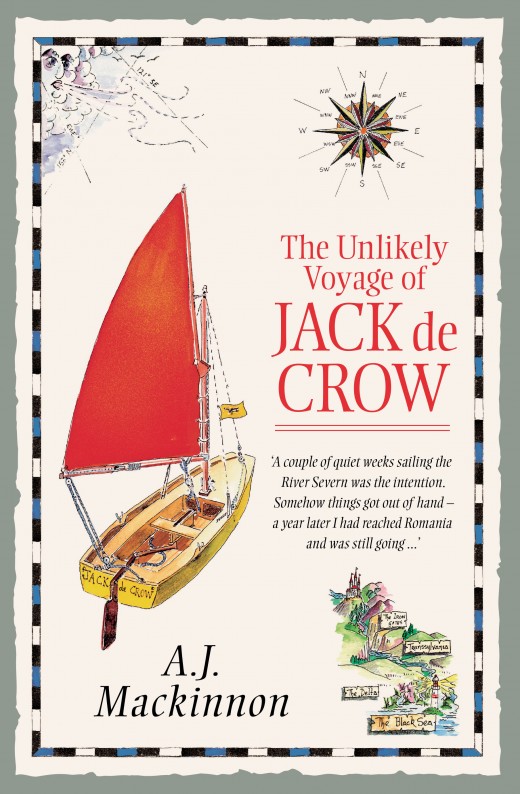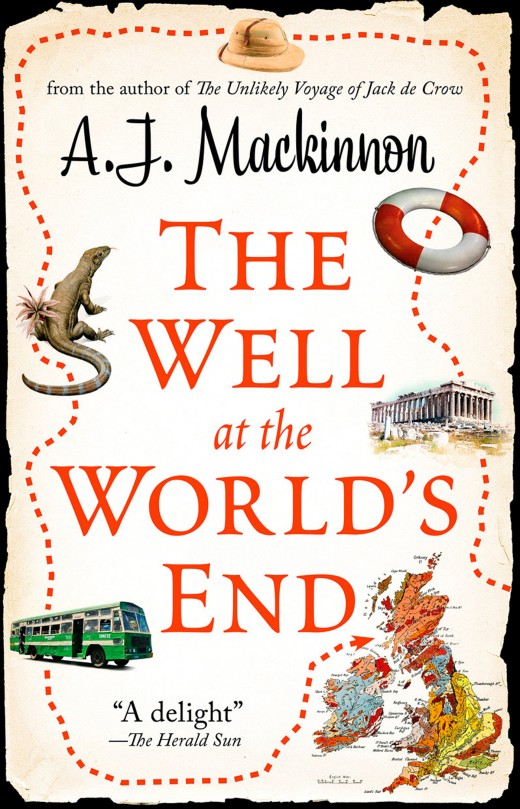News
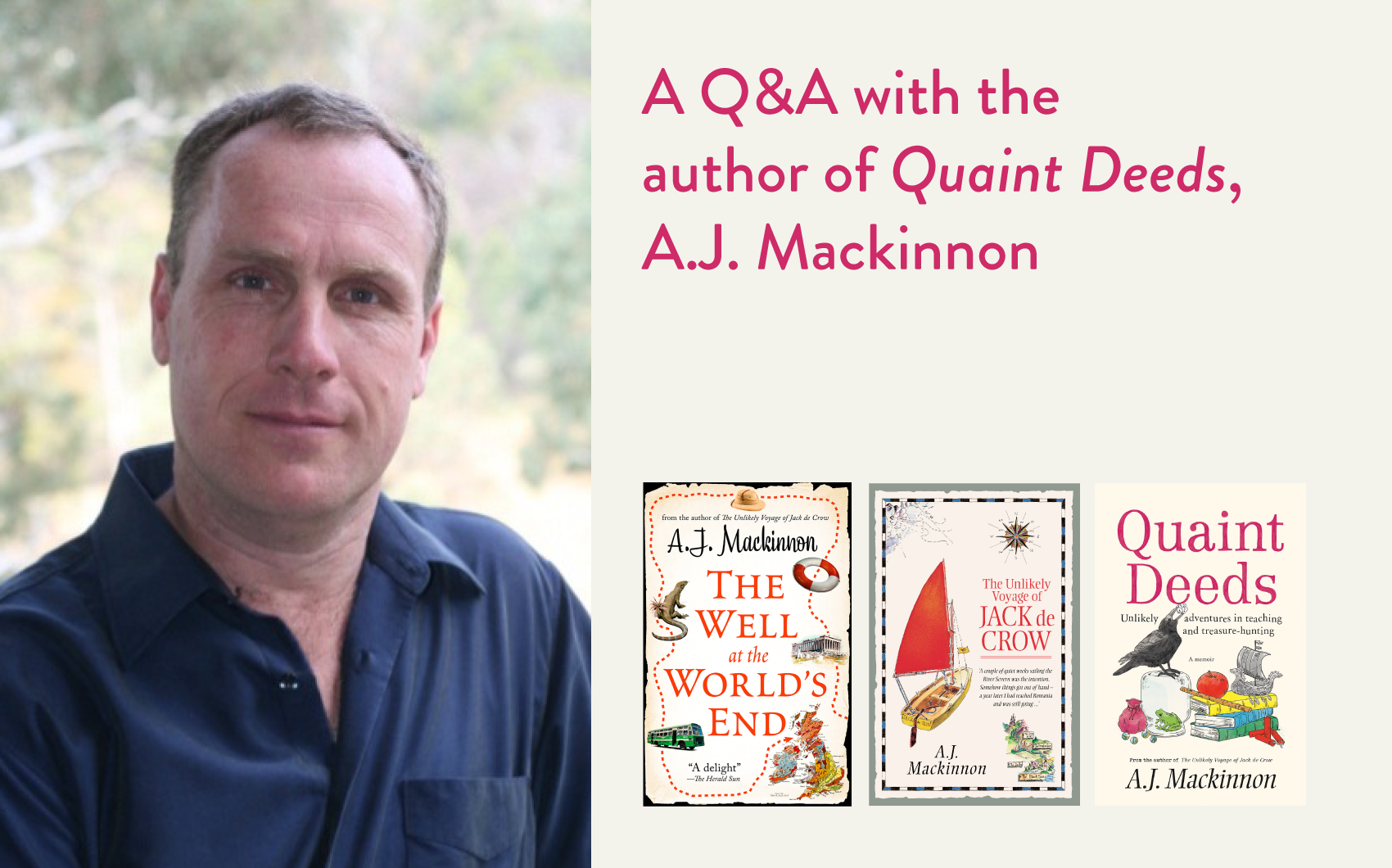
News >
A Q&A with the author of Quaint Deeds, A.J. Mackinnon
A.J. ‘Sandy’ Mackinnon has been a teacher since 1984. He’s worked in various schools around the world, sharing his passions for English literature, mathematics, drama, art and philosophy with countless students over the years. His latest book, Quaint Deeds, is a hilarious and heart-warming memoir of teaching, treasure hunts and finding your own way in life.
In this heartening interview, Sandy tells us a cheeky classroom story that didn’t make it into the book, his best advice for teachers, and his one must-read book recommendation.
Your last book, the travel memoir The Unlikely Voyage of Jack de Crow, was a runaway hit. How did it come about?
The actual adventure came about inadvertently. I decided to borrow a small wooden dinghy simply as a dramatic way of saying farewell to Ellesmere College where I had worked for six happy years… a rowing-off-into-the-sunset sort of thing… intending to go for two or three days at the most down the waterways of Shropshire. I got a little carried away – I ended up 14 months later in the Danube Delta on the Black Sea, having rowed and sailed 4,900km.
I wrote a fair number of letters to friends and family during the voyage and only later thought that these might be worth turning into a travelogue. Hence The Unlikely Voyage of Jack de Crow.
Now you’ve written a book about your life as a teacher, Quaint Deeds. Without spoiling too much – do you have a favourite story from your years in the classroom?
A cheeky anecdote that didn’t make it into the book is one of my favourites. I was teaching English to a class of year eights and, to my slight alarm, the story we were reading aloud in class made reference to an orgy. There was the inevitable snigger around the room, and I decided to defuse it by asking in a pretty straightforward way if any of them knew what an orgy was. One little chap – Timothy – put up his hand enthusiastically and said, ‘Oh yes, I know, sir! I know.’
‘Really?’ I said, a little surprised. Timothy had always struck me as a somewhat innocent soul.
‘Oh yes, sir. We have them at our beach house. They’re marvellous. My dad likes watching them.’
At the burst of hilarity (and horror) that rang out at this, Timothy paused and faltered. ‘Um…’ he said. ‘An orgy. It is a type of sea-bird, isn’t it?’
To this day, I am not sure if he was thinking of ospreys or egrets… but I was relieved to find that young Timothy was still as innocent as I had always imagined.
What’s the most important lesson you’ve learned in teaching?
Love your students. Give off the impression – even if you have to fake it like mad – that this class you have just walked into is really, secretly your favourite class of all and that you have just been dying to get back into their company since the last time, because you so enjoy their company, their humour, their intelligence, their cheekiness, their diligence… or whatever. Their mullets, if need be! If students think they’re liked by you, they will learn and love learning. Sadly, the inverse is also true. As soon as you give off the impression that this class are the duds, the thugs, the boring, tedious, or dislikeable ones, you have lost them for good.
Secondly, don’t ever let the tedious tail of assessments, curriculum documents, bureaucracy, Heads of Departments, examinations, mark-books, lesson plans etc. wag the dog of learning. Teach playfully, passionately, brilliantly, strictly, demandingly… and with dozens of deviations from the set lesson plan or curriculum whenever the opportunity arises. Don’t allow yourself to be bamboozled or cowed into dullness by the ever-increasing demands of accountability-driven, box-ticking bureaucracy. Remember back to your own best teachers and you will soon realise that the best of them were probably a bit maverick.
Has teaching English made you a better writer?
Yes, definitely. This is mainly because over the years, I have often devised worksheets on writing techniques and these have usually involved me having to write models of good writing – here’s an effective alliterative poem, here’s how you create suspense, here’s a piece that strives for a dreamy, lyrical tone, here’s a short story that ends where it started… and so on. As with all things, the more I’ve written these pieces as examples for my students, the better I’ve got as writer… I think!
When it comes to writing, are you a meticulous planner, or do you wait for a structure to form organically?
Luckily with true-life travel writing and, as in this latest book, with true events and anecdotes, I haven’t had to be creative in terms of content. I’ve simply recorded things as they happened. However, in more imaginative works such as my unpublished psychological thriller based on The Tempest, I had to write the whole book before I found out what the twist was at the end! That’s the only way I can do it… just start writing and see where it leads organically. Only then can I go back and decide that this part of the plot needs scrapping, that this new bit needs inserting, that this character actually has to be the father of that one, that she needs to be 12 and not 25, that the teacher has to have a pet tortoise and not a cat… or whatever.
What’s one book you think everyone should read?
Anything and everything by C.S. Lewis – the greatest and wisest influence on many areas of my life and a superbly lucid, simple writer… but if you are asking for just one book, I’d say T.H. White’s The Once and Future King – the greatest spectrum I know of comedy, whimsy, scholarship, drama, enchantment and tragedy; tackling profound themes of love, learning, nature, human violence and friendship… and all written in the oddest style, which just crackles with idiosyncrasy.
Click to learn more about Quaint Deeds, The Unlikely Voyage of Jack de Crow and The Well at the World’s End.
Share this post
About the author
A.J. Mackinnon was born in Australia in 1963 and travelled as a boy on P&O liners between Australia and England, developing a love of slow travel. He started his teaching career in 1984 and has worked in various schools around the world, sharing his passion for English Literature, mathematics, drama, art and philosophy with countless students over the years. He now lives in the Victorian High Country of Australia, where he continues to love his teaching, his garden and various other creative …
More about A.J. Mackinnon


